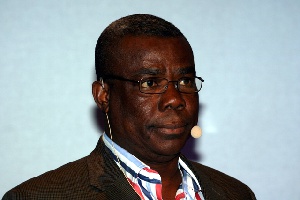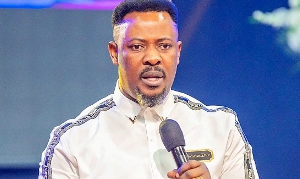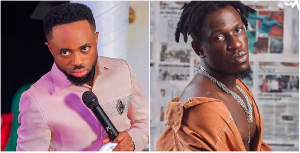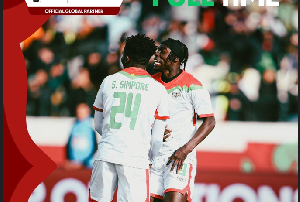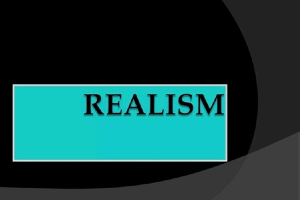“The important work of moving the world forward does not wait to be done by perfect men” (Mary Ann Evans).
AKUFO-ADDO AND THE QUESTION OF POLITICAL ECONOMY
From all indications, Akufo-Addo does seem to be frontline leader who has a scientific grasp or deep understanding of the complexities of political economy, development economics, and development sociology, which is why his fawning surrogates, especially Mahamudu Bawumia, does the hatchet job in his behalf. As for Bawumia, he is only as good as a partisan talking-head anarchist economist!
Akufo-Addo needs more time than is necessary to learn the ropes if he wants to succeed in managing the political economy of Ghana.
But all is not lost yet. Akufo-Addo could get around the gaping cracks in his inventory of technocratic knowledge by reading voraciously as Kwame Nkrumah and Bill Clinton did during their productive presidencies.
He also needs to surround himself with accomplished men and women with a wide spectrum of technocratic expertise, as well as a sense of patriotism and of social justice.
What are Mac Manu’s contributions to the constricted knowledge base of Akufo-Addo?
Even Bawumia is more of a vauntingly dated hollow pipe than a pragmatic substance of ideational storehouse, insofar as the applied technocratic dimensions of development economy, political economy, and development sociology go.
In fine, he is at best an unhelpful cacophony of ideational pollution to the noble causes of comparative advantage, macroeconomics and pragmatic nationalism.
Still, he no doubt represents the strategic and tactical balance Akufo-Addo needs and will need as part of the political economy of policy formulations in the eventuality that the NPP wins power.
Again, his boss is not any better. In hindsight, the so-called successes he has managed to chalk as a lawyer and a “public advocate” become potentially suspect in the light of the sensational revelations by Anas Aremeyaw Anas.
Our judiciary has always been one of the most corrupt in the world. Anas’s are merely a tip of the iceberg.
PERVERSION OF THE LAW IN THE GHANAIAN BODY POLITIC
The law is not necessarily an ideational institution borne out of the illogical momentum of infallibility and of perceptual perfection.
The law is, to wit, a political and moral convenience of tactical and strategic conflation of man’s fallibility and his pretensions to infallibility, sometimes beautifully captured in codified or statutory law—no less—a normative theory raised on an underlying architectonics of instrumentalism.
It is therefore a means to, and not necessarily an end in, any enterprise bordering on a moral authoritative chaperoning of collective (and individual) responsibility—the public good.
Many a time it is simply borne out of the optimal consensus of a corps of men and women of elitist privilege overprotective of its social, political and economic interests.
It is no secret that these laws or some such elitist laws hold those on the social rungs of society in contempt, thus reposing inordinate power in the hand of the cream of society. A natural corollary of this arrangement is the birth of the concept of unequal dichotomy.
Neither is the law an exact science. Even in the exact sciences egregious mistakes and mishaps are notably common.
The law is necessarily, for all intents and purposes, an inexact science for that matter, mostly erected on a loose foundation of normative theory in our layman’s view.
The statutory institutionalization of protective instruments—of codification—and the concept of statutory interpretation (construction) further impose a measure of fallibility on legal realism and legal formalism.
Thus, statutory interpretation does not always come about on account of a vigorous quest for truth.
Many a time it is the result or outcome of a body of opinions based on personal convictions (religious, political, class and economic beliefs), political patronage, pedigree of jurists, partisan politics, and so on (see Bruce Wright’s books “Black Robe, White Justice: Why Our Legal System Doesn’t Work for Blacks” and “Black Justice in a White World: A Memoir”), which is why there are appellate courts (Read: “courts of appeals,” “appeals court,” or “appeal court”) and “Supreme Court” in many a geopolitical jurisdiction, as well as concepts from standard of review, judicial review, writ of certiorari, mistrial, revocation, guided discretion, aggravating and mitigating factors, judicial discretion, and judicial restraint to judicial activism, not necessarily in these exact forms but in variant forms of institutional construction.
This is partly why it is always possible for half-baked lawyers, public advocates, and law firms to win controversial cases not necessarily because statutory interpreters try to locate judicial verdicts and opinions stringently within the authoritative confines of the solemn innards of the law, but rather because of some of the germane issues we have raised in the preceding paragraph.
Members of the Ghanaian legislature are no different. In other words Ghana has not fared better with our legislature and its corruption. Akufo-Addo and President Mahama both used to be prominent members of that corrupt, disgraceful legislature of clueless yes-men, just as Kennedy Agyapong is a contemporary member of this non-functional body.
This is why we cannot also deny Napoleon Bonaparte’s alleged observation that “in politics, stupidity is not a handicap” or Niccolò Machiavelli’s alleged maxim that “politics have no relation to morals.”
All this is to say lawyers and judges have been giving and taking bribes before Akufo-Addo was born and became a prominent member of the Ghanaian legal system.
Also, we had classmates some of whose parents and relatives were judges and lawyers and from them learned so many horrible stories regarding the unwholesome perversion of the law within the judiciary.
Growing up we saw, heard and also knew of instances where lawyers and judges, who belonged to such secret organizations as Freemasonry (e.g., the Lodge or Masonic Lodge), saw the law merely as an instrument of friendly patronage among colleagues of the same or related secret fraternities.
It is just like friends and colleagues patting each other on the back for the simple fact of reciprocal favors, namely trading favors amongst themselves in the moment, prior to official adjudication of a case, or at a later date. Which means the motif of the human factor, namely the theory of whom-you-know, is so strong in Ghanaian jurisprudence as to declass common sense, legal reasoning, and logic, thus placing Ghanaian jurisprudence and adjudicatory hearings in a chokehold of comedic disapprobation. In fact buying justice, behind-the-closed-door or underhanded judicial rulings are relatively rife, a situation that makes Ghanaian jurisprudence a joke!
All the instances of solemn formalism we see in adjudicatory hearings within the perimeter of the penultimate contexts are merely feints meant exclusively for public consumption. This is the thrust of Anas’s revelations. In fine, how well one is connected in the social, political and economic framology in the Ghanaian body politic can, and in many cases, does determine the direction of judicial opinions, decisions, or verdicts. It is the same everywhere as a matter of course.
The law is therefore not esoteric as some would have us believe, but rather its sometimes underhanded manipulations to suit a certain convenient frame of perception without recourse to legal realism is what drives some of us to at it and its human agents askance.
In sum, the judiciary is a dangerous cabal partially made up of agents of moral turpitude. This is not to say there are not good, patriotic and genuine lawyers and judges in Ghana—far from it.
It is rather to emphasize the need to always judge the character of a lawyer and a judge on a wide-ranging spectrum of standards including the possibility of still-unanswered questions following the Anas’s shocking exposé. Because no judge is God, and because no lawyer is an angel. Both are human.
No one is directly saying here that Akufo-Addo’s legal successes in the courtroom are as a result of any claims of his bribing judges in exchange for favorable verdicts.
We are merely raising it as a possibility as it is almost impossible to identify or place any politician in our body politic who claims to have clean hands.
In this sense, we are making a rather more nuanced reference to so-called “the dirty hands doctrine” or “the clean hands doctrine”!
We also understand the apothegm clearly:
“He who comes into equity must come with clean hands.”
CONCLUDING REMARKS
To put it mildly, their questionable leadership skills today as heads of their parties gives us cause to wonder what good they did for their respective constituencies and for the country as a whole during their tenures as legislators.
While the presidency and the legislature are different in many essential ways, one still wonders what good they carried with them from the legislature to the competitive field of the presidency, namely Akufo-Addo’s potential and Mahama’s incumbent presidency.
Our legislature has never been an institution whose rubber-stamp deliberative character is defined by a rigorous pragmatic cognition of its individual members. The legislature is merely a chamber pot of persons with a crab or herd mentality.
Our duopolistic executive dominance and the so-called Indemnity Clause further make the legislature not only politically weak but morally incompetent. The confused psychology of this legislature is therefore one of a bostrophedonic architecture. Here is just one notable example:
“Minority Leaders in Parliament, Osei Kyei-Mensah-Bonsu has admitted Parliament did not do a diligent work when it passed the Constitutional Instrument 94(CI94)…Indeed parliament as a whole ought to have been much more diligent when the final product came. Unfortunately again I am told because of the rush a lot of people didn’t have the document to peruse…
“Sharing her thoughts on the issue, a special guest on the show, Madam Rodalyn Imoro Ayana, suggested it is time Ghanaians took a second look at the qualification of parliamentarians before electing them into office.
“‘That is why I’m joining the school of thought that, it’s about time that we started looking at the qualification for members of parliament…It looks as somehow some of them are overworked because some people do not cut it and so just a few of them are working hard so at any given stage they are working too hard…”
As well, we need to be concerned about the mental health of our legislators and politicians in general as their behaviors sometimes say otherwise.
We shall return with Part 4, the concluding segment.
REFERENCES
Jeremy Diamond. (October 20, 2016). “Donald Trump: 'I Will Totally Accept' Election Results 'If I Win.'” Retrieved from http://www.cnn.com/2016/10/20/politics/donald-trump-i-will-totally-accept-election-results-if-i-win/
Ghanaweb. “NDC Not Ready To Relinquish Power—‘Montie Trio’ Member.” October 30, 2016.
Max Fisher. “Read The Most Important Speech Nelson Mandela Gave.” The Washington Post. December 5, 2013.
Ghanaweb. “Akufo-Addo Saved Ghana From Doom—Dr Anthony Baah.” November 1, 2016.
Ghanaweb. “Parliament Wasn’t Diligent In Passing CI 94—Minority Leader.”October 30, 2016.
Opinions of Saturday, 5 November 2016
Columnist: Kwarteng, Francis

